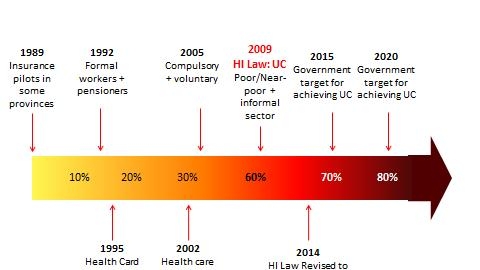
What is a premium tax credit (PTC)?
The premium tax credit is a federally funded program that reduces the cost of insurance premiums when you purchase coverage through the Health Insurance Marketplace. It is available to families and individuals with incomes below the federal poverty level who meet other eligibility criteria.
How does it function?
When you apply through the Marketplace for health care, you estimate the family income to help your insurer determine how much of a premium tax credit you will receive. This credit is then transferred directly to the insurance company and lowers your monthly premium costs.
If you're eligible for a credit on premiums, your insurance company will send you an "Health Insurance Marketplace Statement", or 1095A, when they issue your policy. The form also reports the amount of your premium tax credit to the IRS for tax purposes.
Your premium tax credit will be based upon your estimated household earnings and the size and number of dependents in your tax family. This includes you, your spouse (if you're filing a joint tax return), and your children. Your premium tax credits will change if either your income or the size of your tax family changes.

What happens if your income is higher than expected?
You may have to return part or all your premium tax credits if you increase your income during the year. The maximum amount that you can pay back is capped at 400 percent of your household's income. It is sometimes referred to by the term "clawback."
How does it work if your income changes
Report any changes to your income as soon as you can. You can avoid having to repay excess premium credit at the year's end.
The amount you have to pay back depends on your income and whether or not your income is above the poverty line. The instructions for Form 8962, which is used by individuals to report health insurance costs through the Health Insurance Marketplace, outline the rules.
What is Form 8962?
When you file a tax return, it's important to include the amount you received as an advance premium tax credits in 2021. The amount that you will have to reimburse depends on the results from the reconciliation of your 2021 advance premium tax credit with the premium credit for the year.
You can reconcile your advance premium tax credits received for 2021 using Form 8962. This form can be located on the IRS' website or your state's.

IRS requires that you also report the results from the reconciliation of any advance premium credits you received for 2021. Line 29 in Part III of your 2021 federal income tax return will show the results.
There are some exceptions to this rule, such as if your household income is above 138% of the poverty level in states that have not implemented the ACA's Medicaid expansion or if you received unemployment compensation for any week beginning in 2021. These exceptions, however, only apply to income you reported for your taxes in 2021.